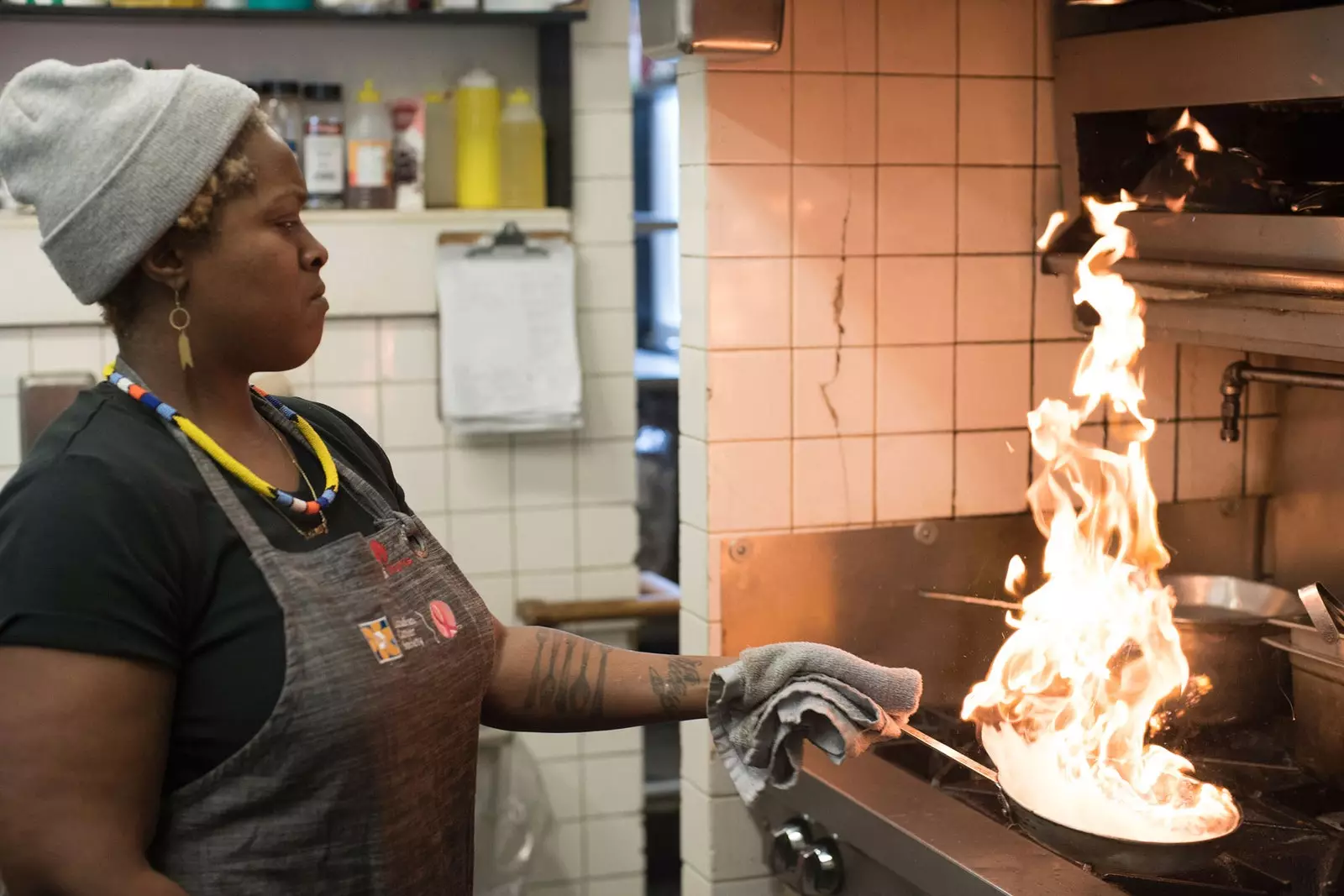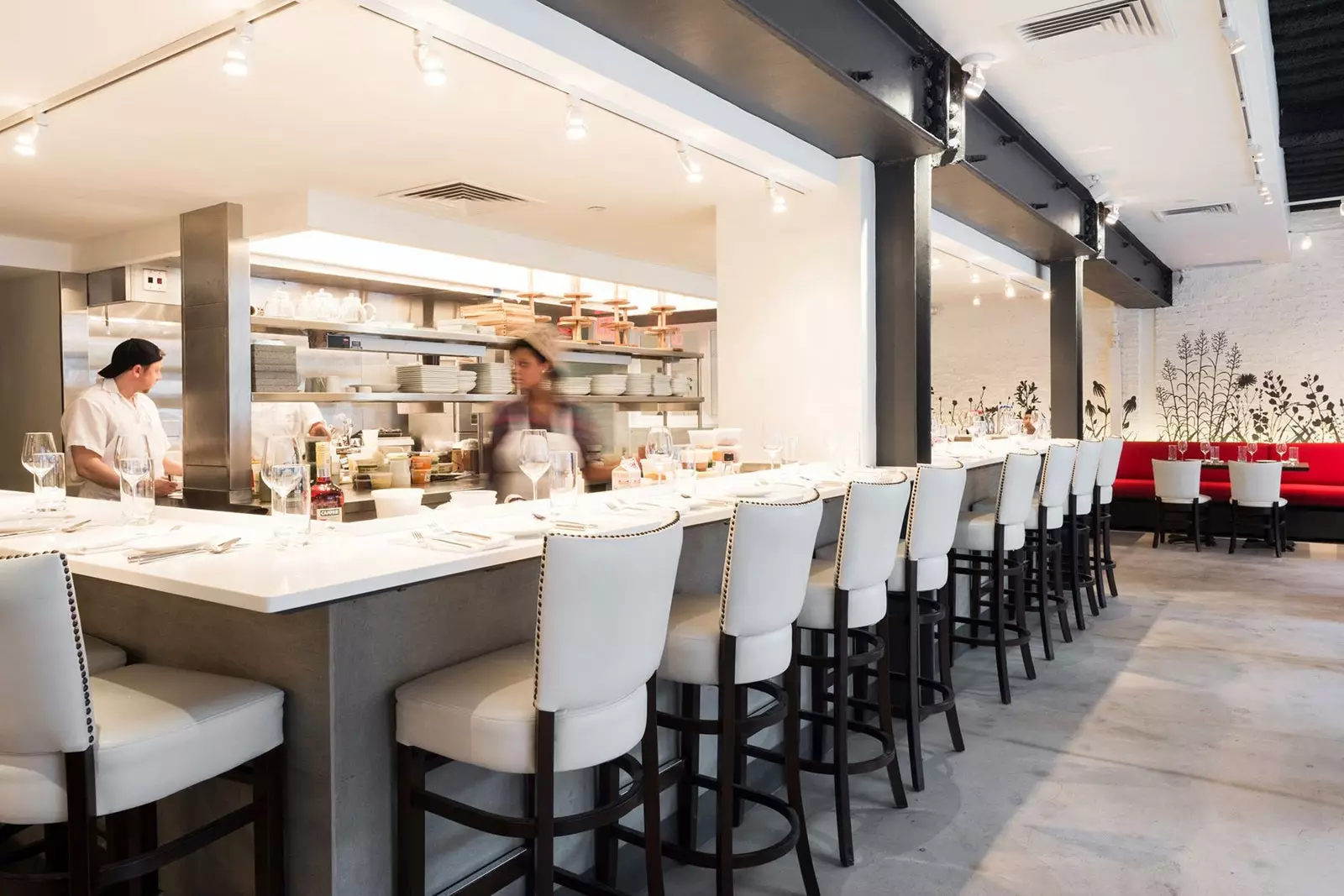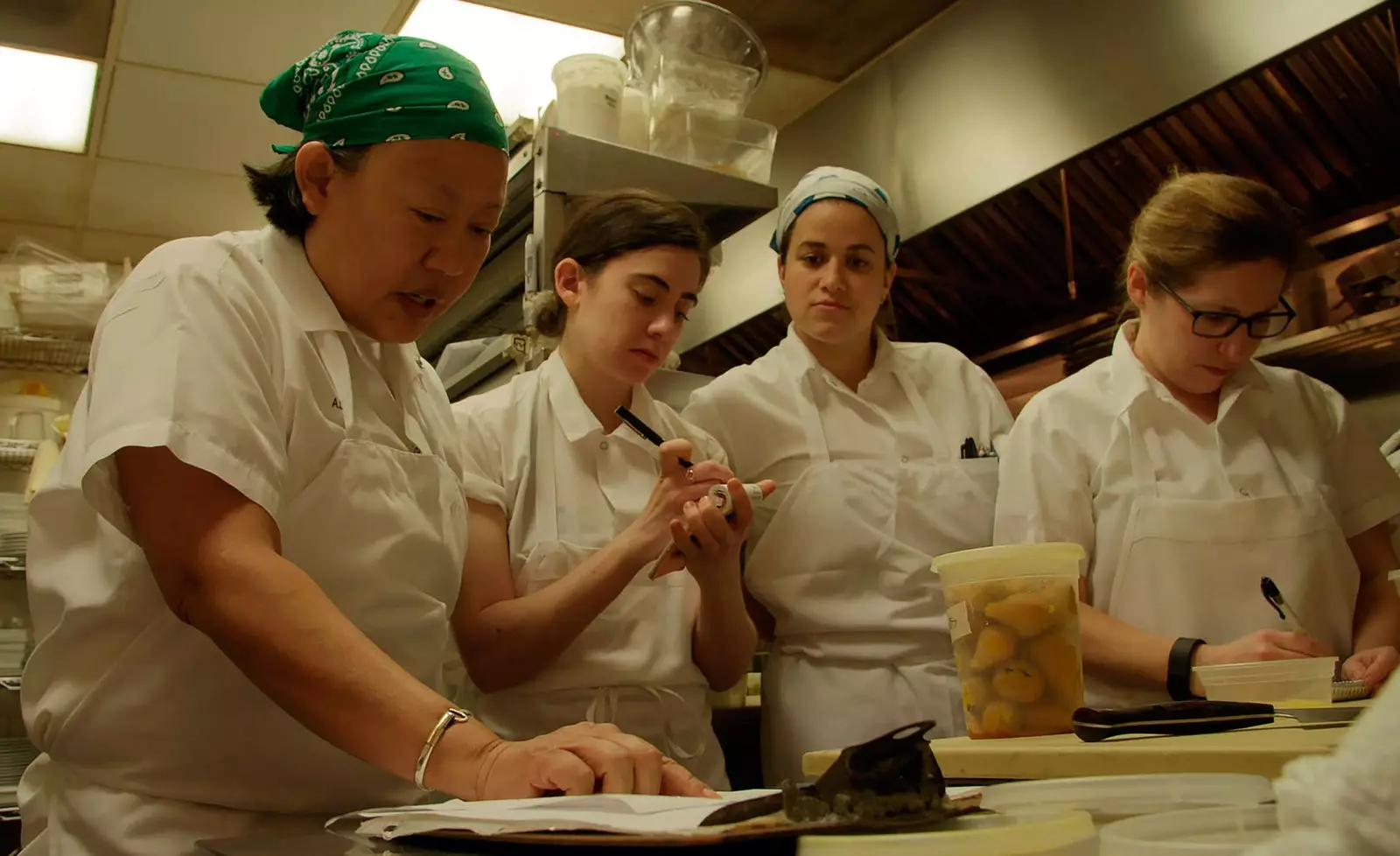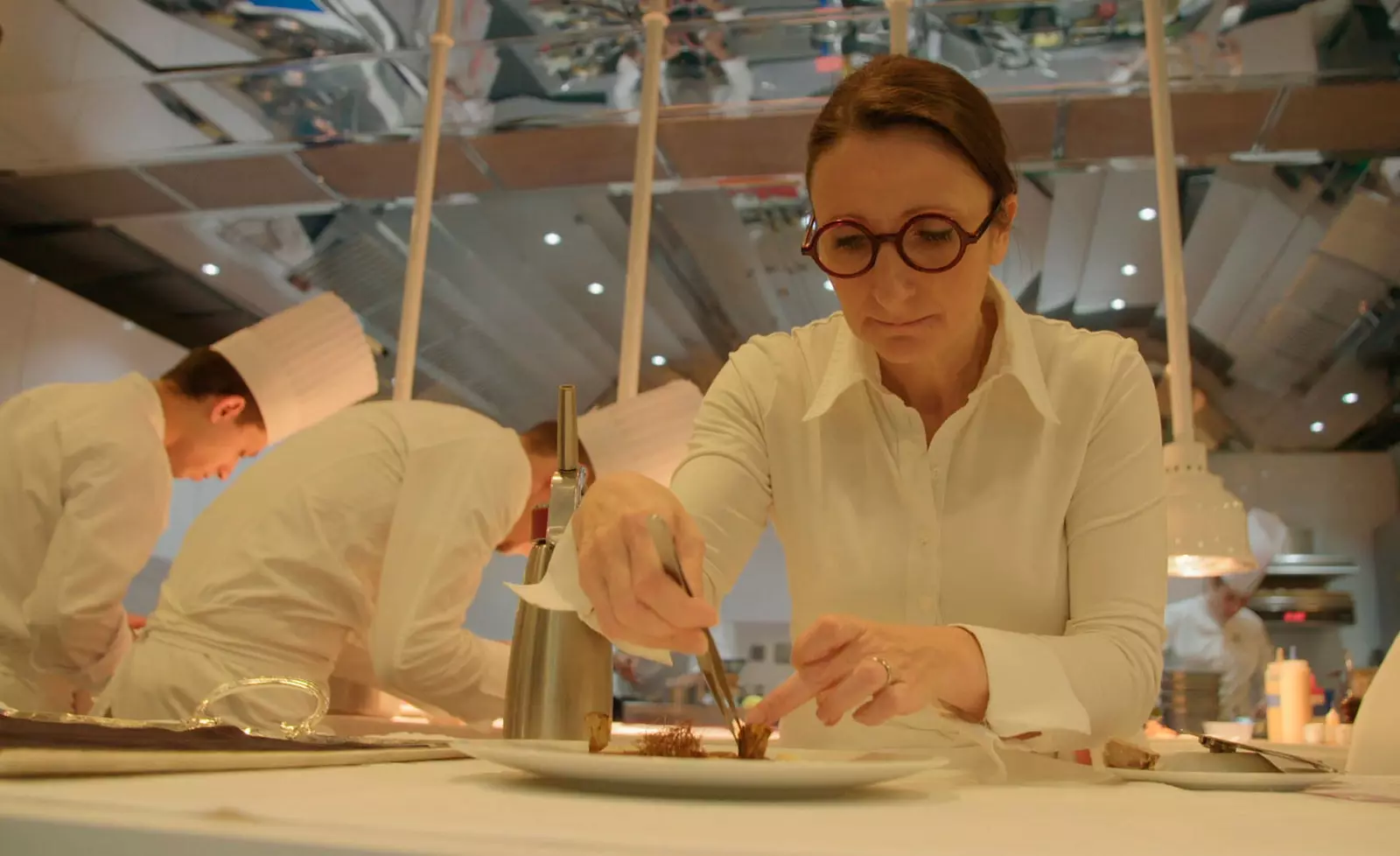
Suzanne Barr and her culinary diversity revolution.
No sweeteners, no preservatives, no flavor enhancers or flowers that decorate reality and make the bad drink go away better. The documentary The Heat: A Kitchen (R) evolution, premiered at the last Berlin Film Festival, directed by the Canadian Maya Gallus, is a frying pan to the situation of inequality that international gastronomy is experiencing.
Gallus began shooting in April 2017, months before the statements against film producer Harvey Weinstein launched the #MeToo movement and similar cases of sexual harassment and abuse began to be reported in other sectors, such as the kitchen. And even so, the protagonists of this documentary do not speak with half measures and Gallus, who spoke the film after all the scandal, she admits that the change may have accelerated, but we were so far behind that there is still a long way to go.
The director started The Heat after a first documentary dedicated to women in the service, Dish: Women, Waitressing & the Art of Service. “Doing research, I started reading articles about women in the culinary industry and the lack of representation. Some of them had titles like 'Where are the women cooks?'. And really, there have always been female chefs, it's just that we haven't been interested in them."

Amanda Cohen's vegetarian paradise since 2008.
LACK OF ATTENTION
That is precisely one of the complaints made by one of the protagonists of the documentary, Amanda Cohen, she owns one of the most popular vegetarian restaurants in New York, Dirt Candy. "A large part of the problem is the media, what you see all the time on the covers or those who collect awards are men", she says she. And while she says it, she like her tries multitude of covers with the great masculine names of the kitchen. And, of course, if you don't have publicity, if your name isn't popular, "you don't get money to open the kind of powerful restaurant that gets all the attention," she says. "It's a whiting that bites its tail."
Cohen gives another example, that of Eugenie Brazier: the first person to get six Michelin stars was a woman, yes. However, when Alain Ducasse succeeded much later, the news completely erased Brazier.
Victoria Blamey, Chilean, but whose career in the kitchen has been international, from Australia to Barcelona and ended up in New York in charge of the kitchen of Chumley's (which she left at the end of 2017), she explains on camera that her dream would be to open her own restaurant. “Having more freedom, a blank canvas to express myself on the plates,” she says. But she doesn't get that opportunity because of what her partner says.
Suzanne Barr, Canadian chef, she went through everything to be able to open her first and cozy Saturday Dinette restaurant in Toronto. And throughout the filming we see how she must close it due to lack of investment.
MATTER OF ROLES
“Men cook for glory, women cook for love” (Men cook for glory, women for love) is the saying that repeats the mythical Anita Lo. The roundup of established roles in the kitchen, from the home to Michelin-starred restaurants. Another of the problems to understand why the more we go up in the gastronomic level, the less women are seen.
"My mother cooked almost always and when my parents separated, my father became a brilliant cook"; tells the director. “Victoria Blamey talks in the film about how she doesn't remember her father cooking. She was always her mother. And that's almost always true."
“Women are the ones who have always cooked, they are the ones who cook for the men who have later become chefs”, says Blamey too.
Trying to break that gender norm is chef Anita Lo. Almost a pioneer in the New York gourmet scene, Anita Lo opened her restaurant Annissa in 2000. His kitchen, where he prepared his famous foie grass dumplings, was full of women and when he decides to leave it and close in 2017, he does so exhausted by the fight **(“If you are not white, straight, you do not fit the norms of gender, of course you get angry”, he says) ** and to leave “space for the new generations”. New generations that, at least, will have a model like her.

Anita Lo and her former women's kitchen at Annisa.
HARASSMENT, ABUSES
Although less media coverage than the complaints in the film industry, the foundations of the kitchen have also been raised, finally, in the last year. The list of denounced chefs is being updated little by little. And it may just be the beginning. "Every day there are more stories and more women who have been harassed or abused feel safer to speak", Gallus says.
In his documentary Ivy Knight, A former cook, today a gastronomic critic, recounts a chilling episode she suffered with her sous-chef, to which the restaurant bosses replied with "Hang in there."
Amanda Cohen says it very clearly: "They have not harassed me because I am a woman but because they are all assholes who harass anyone they see as weaker."
If the women's revolution in the kitchen is achieving something – and they all agree on that – it is that abusive and military forms are dying out (not in vain, the work process was called 'The Brigade Sytem') that media chefs like Gordon Ramsey.
Angela Hartnett, Just one of his students, who worked with Ramsay for 17 years, and today is a prestigious chef with her own name and runs her own restaurants (Café Murano, Merchant's Tavern in London) is the first to renounce those methods, those uncomfortable kitchens that make you feel small, that they are not pleasant places to work.

The only chef with three stars in France.
THE DOUBLE STANDARD
Lastly, ** Anne-Sophie Pic, chef at Maison Pic,** The only woman in France with three Michelin Stars, one of only six in the world, and the fourth chef in the world to obtain it, she emphasizes this idea by creating a “less macho” cuisine. recounting her personal story. She inherited the restaurant from her father, who got a star. She learned a great deal from him and the rest from her alone because in her time, as a woman, she couldn't enter cooking schools.
Being a woman and self-taught were two drawbacks when running a prestigious restaurant. She thought they would accept her, but in her own kitchen, because she was a woman, they did not respect her. She refused to act imposing herself with the old system: yelling, insulting, demanding a “yes, chef” as an answer.
Because in that case, in addition, double standards appear. “If I am more direct, they criticize me, but they would not if I were a man”, she says she. As a woman she is supposed to be sweeter and kinder.
Without presuppositions or prejudices, she has ended up having a neat kitchen where respect prevails, although a hierarchy continues to exist. I wish her: “that the kitchen is not a hard place to work. The human part is important.”
everyone's wish that a day will come when it is not necessary to specify “female cooks” (in English female chef). are positive, they welcome change, but are also cautious. They do not want to continue being "the garnish on the plate" because it is good to talk about women in the kitchen.
